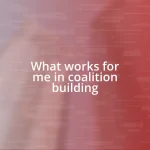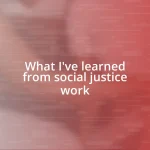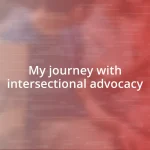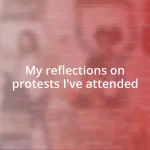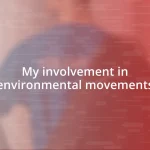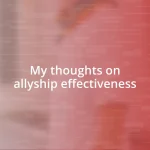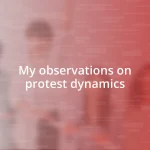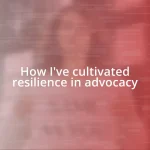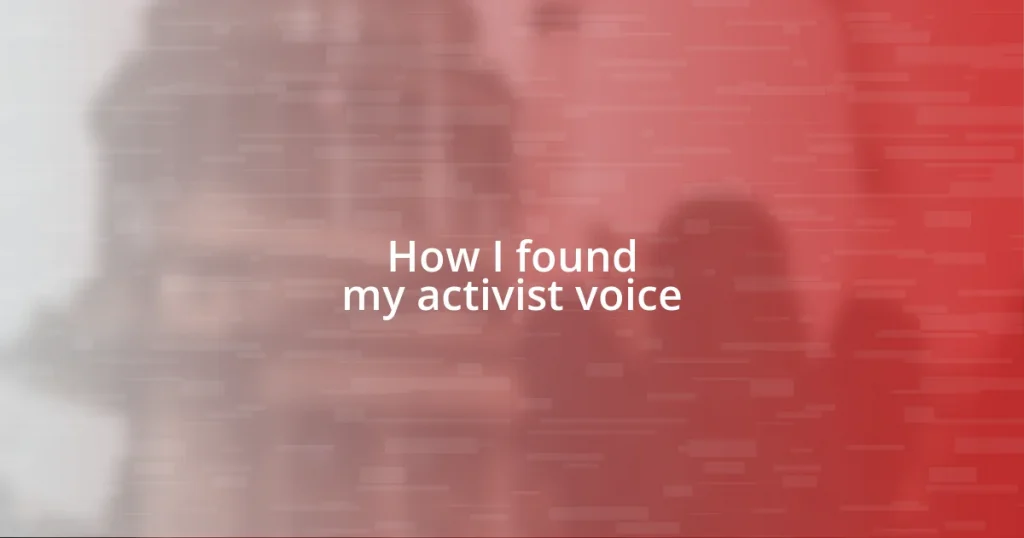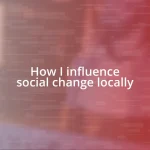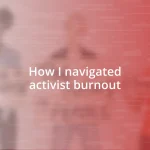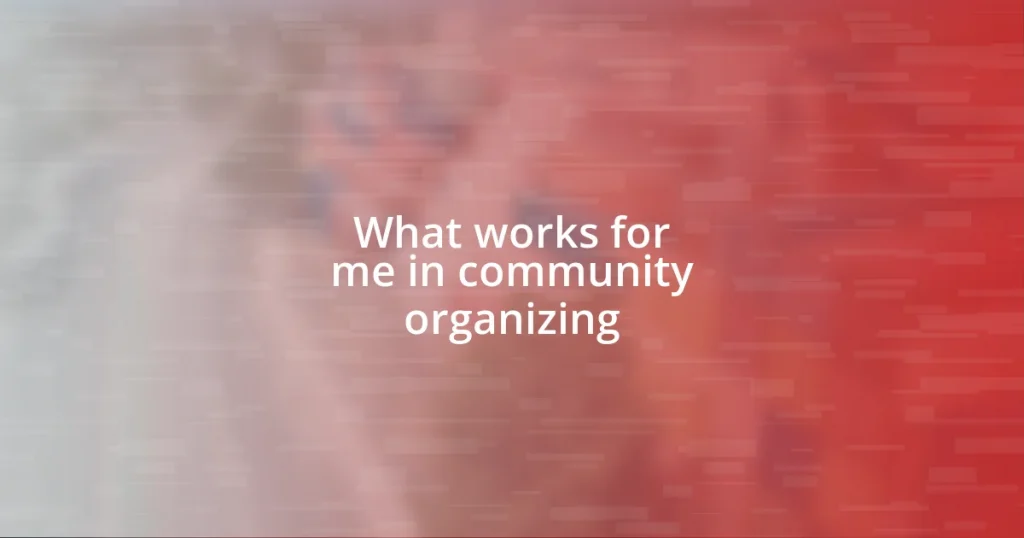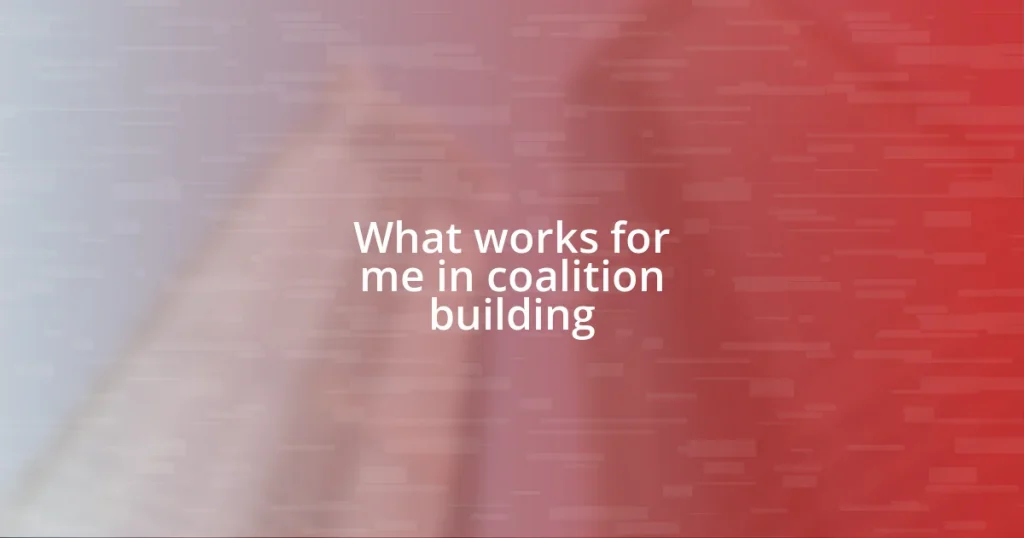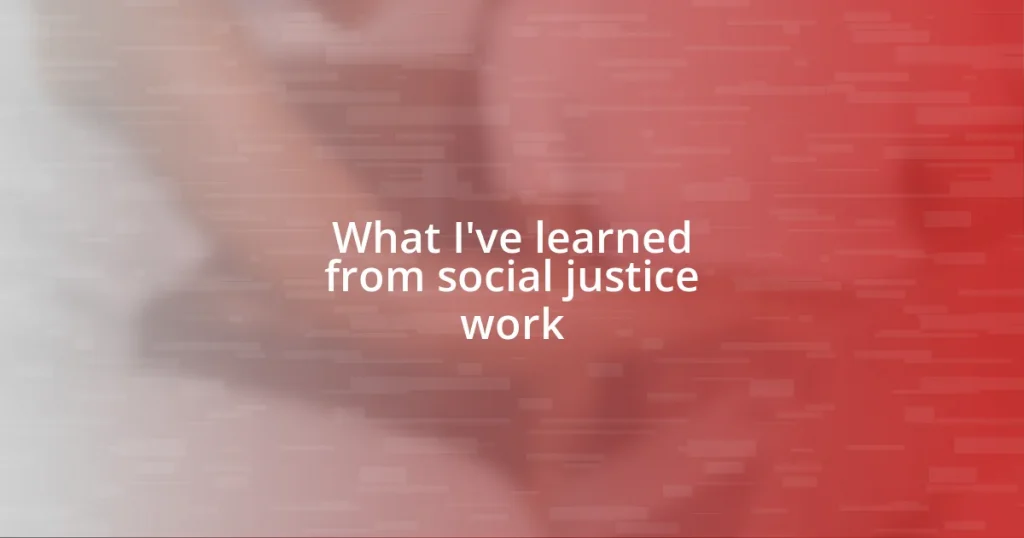Key takeaways:
- Understanding personal motivations through empathy and collective responsibility drives effective activism.
- Engaging with local communities fosters connection and highlights the importance of authentic storytelling in advocacy.
- Building a support network and sharing experiences help combat isolation and amplify the impact of activism.
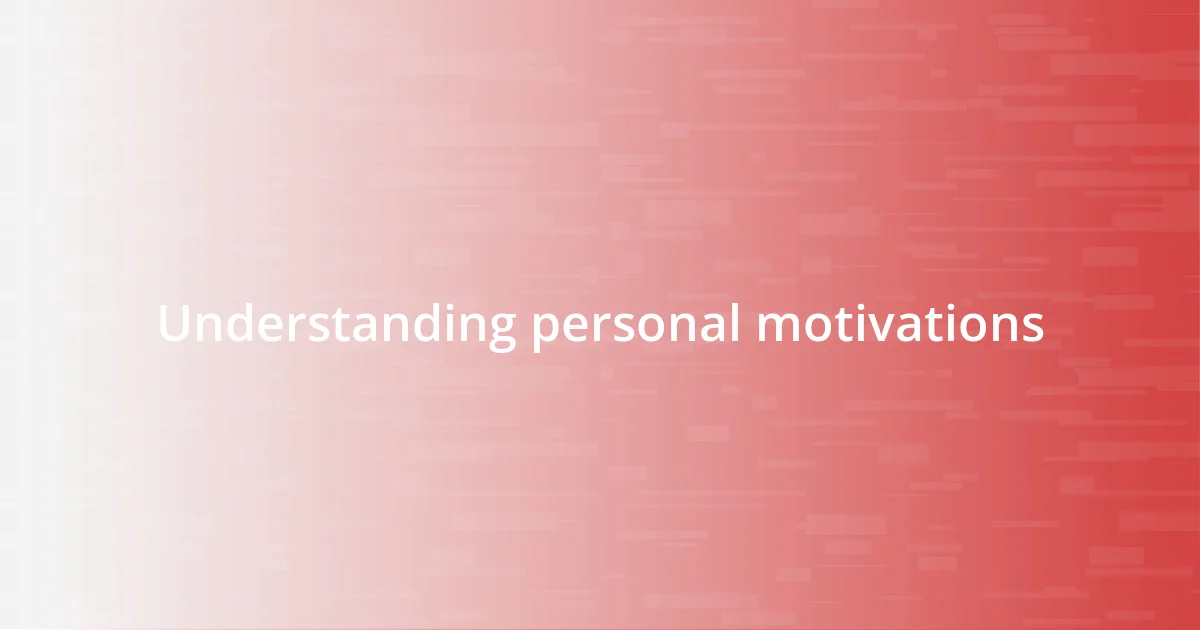
Understanding personal motivations
Understanding my personal motivations has been a deeply revealing journey. I remember the first time I felt compelled to stand up against injustice; it was during a community meeting when a fellow resident shared their struggles. Witnessing that raw emotion stirred something within me—could I remain silent while others suffered?
Reflecting on this experience helped me unpack my motivations. I realized that my drive comes from a blend of empathy and a desire for change. When I witness unfairness, it feels as though my own heart is burdened, pushing me to act. Do you ever reflect on what truly motivates you to speak out? That realization can translate into powerful activism.
As I delved deeper into my motivations, I came to appreciate the unique blend of my background and values. Growing up in a culture that celebrated community, I often felt the weight of collective responsibility. That understanding has fueled my passion for advocacy, reminding me that we’re stronger when we collaborate. What personal values guide your journey? Exploring those can help unlock a powerful activist voice within you.
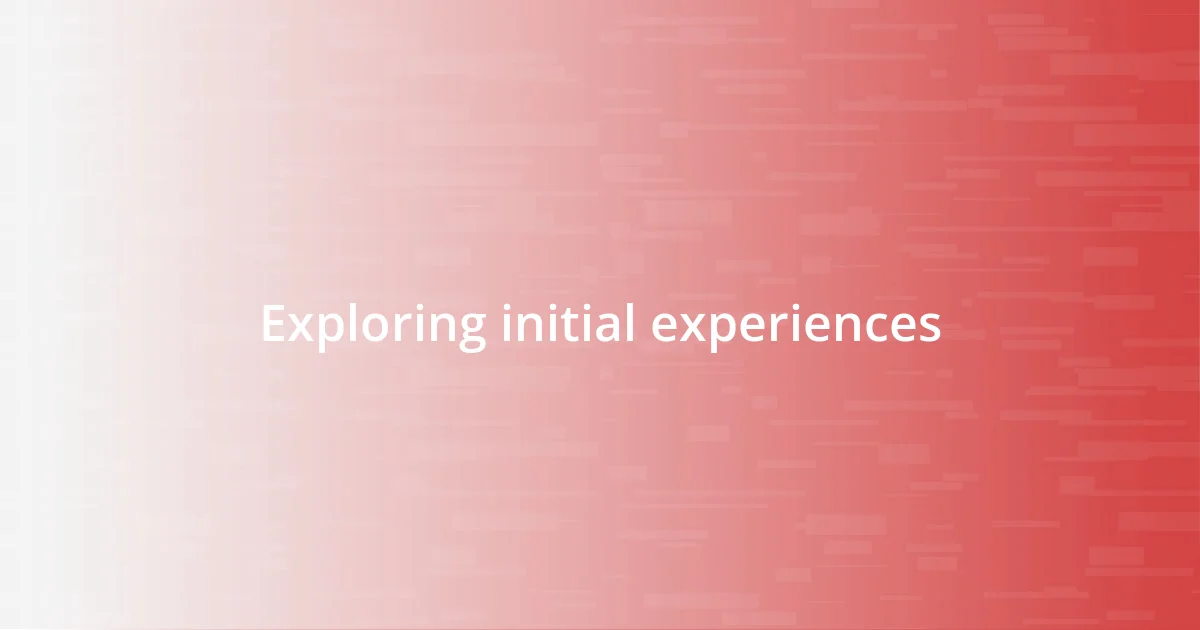
Exploring initial experiences
Experiencing the world through a lens of social issues opened my eyes to the power of community. I still vividly recall joining a peaceful protest for environmental justice. That day, as I marched alongside strangers who shared my passion, I felt a sense of unity that was electrifying. Have you ever felt such connection? It’s incredible how a shared purpose can amplify voices that might otherwise remain unheard.
One of my initial experiences occurred in high school when I organized a fundraiser for a local shelter. It was exhilarating to see classmates rallying behind a cause; we raised not just money but awareness. At every planning meeting, I could feel my confidence grow. It made me realize that taking action, no matter how small, instills a sense of purpose. Have you taken on a project that changed your perspective? Small efforts can indeed spark larger movements.
I remember feeling overwhelmed with emotions during a workshop on social justice. Listening to stories of struggle and resilience, I found myself fighting back tears. That was pivotal; it taught me vulnerability can be a strength. It prompted me to reflect on how my experiences inform my activism and the importance of authentic storytelling. Consider your own stories—how might they inspire others to find their voice?
| Experience | Emotional Insight |
|---|---|
| Joining a protest | Felt a sense of connection within the community |
| Organizing a fundraiser | Gained confidence and clarity of purpose |
| Attending a workshop | Realized vulnerability can empower activism |
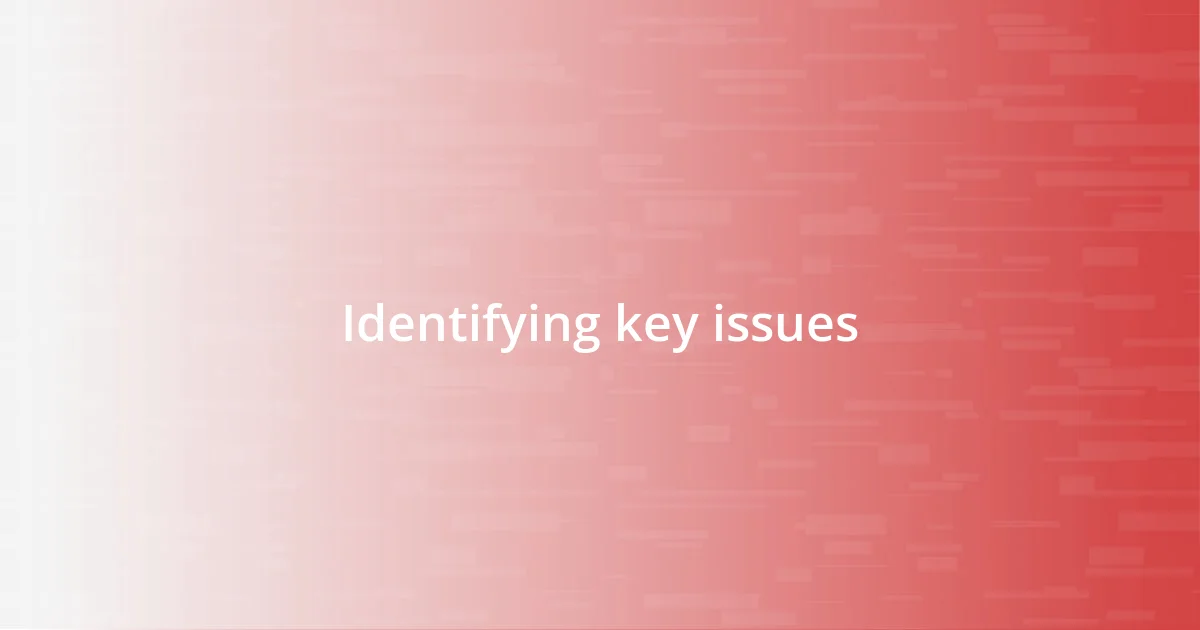
Identifying key issues
Identifying key issues takes introspection and keen observation. It often feels like a puzzle; each piece represents societal challenges, from climate change to racial equality. During my journey, I recall sitting in a local café, overhearing a conversation about food deserts in our neighborhood. It struck me how many people lacked access to fresh produce—something I had always taken for granted. That moment was a catalyst for my activism; it reminded me that sometimes our most impactful issues are right under our noses.
To help myself and others identify key issues that resonate, I developed a simple approach:
- Listen to your community: Hear the concerns people voice in casual conversations.
- Reflect on personal experiences: Consider how these issues affect you and those you know.
- Research trending topics: Newspapers and social media are great sources for understanding broader conversations.
- Engage with diverse perspectives: Talk with individuals from different backgrounds to gain insight.
This process can transform your understanding and lead you to advocate for causes that genuinely matter to you.
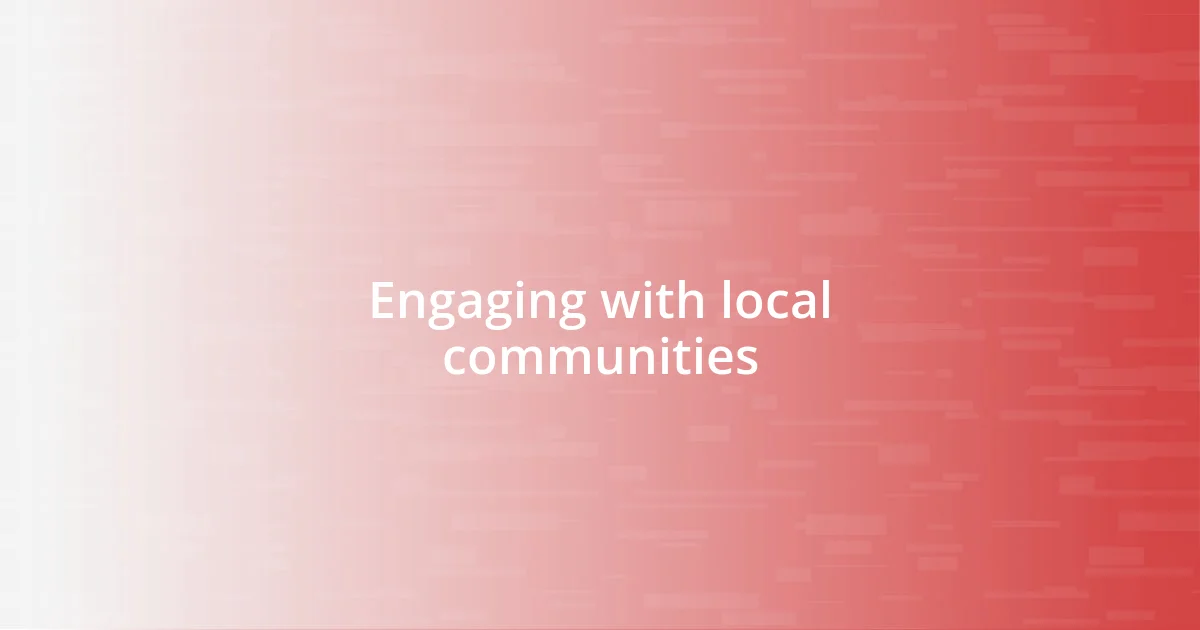
Engaging with local communities
Engaging with local communities has been one of the most fulfilling aspects of my journey as an activist. I remember attending a community board meeting, feeling both nervous and excited about what lay ahead. As I listened to neighbors share their concerns about safety and education, I felt a wave of responsibility wash over me. Have you ever been in a room where everyone’s voices blend together to create a chorus of shared hopes and dreams? It reminded me that these gatherings can spark powerful connections, driving real change.
Once, I stepped outside my comfort zone to host a community clean-up day. Initially, I was anxious about rallying enough volunteers, but seeing familiar faces and new friends join in transformed that anxiety into joy. As we worked side by side, picking up trash and sharing stories, I recognized how local efforts can build trust and solidarity. There’s something beautiful about coming together for a common goal, isn’t there? It doesn’t just change the environment; it cultivates a sense of belonging.
I often think about the relationships I’ve built within my community. During one outreach event, I chatted with a single mother struggling to make ends meet. Her resilience ignited a fire within me; it was a stark reminder of the real struggles many face daily. Connecting on that level fostered a lasting bond and deepened my understanding of community needs. How can we better support those around us if we don’t take the time to listen and engage? I believe this is where true advocacy begins—by prioritizing the voices of those we’re striving to uplift.
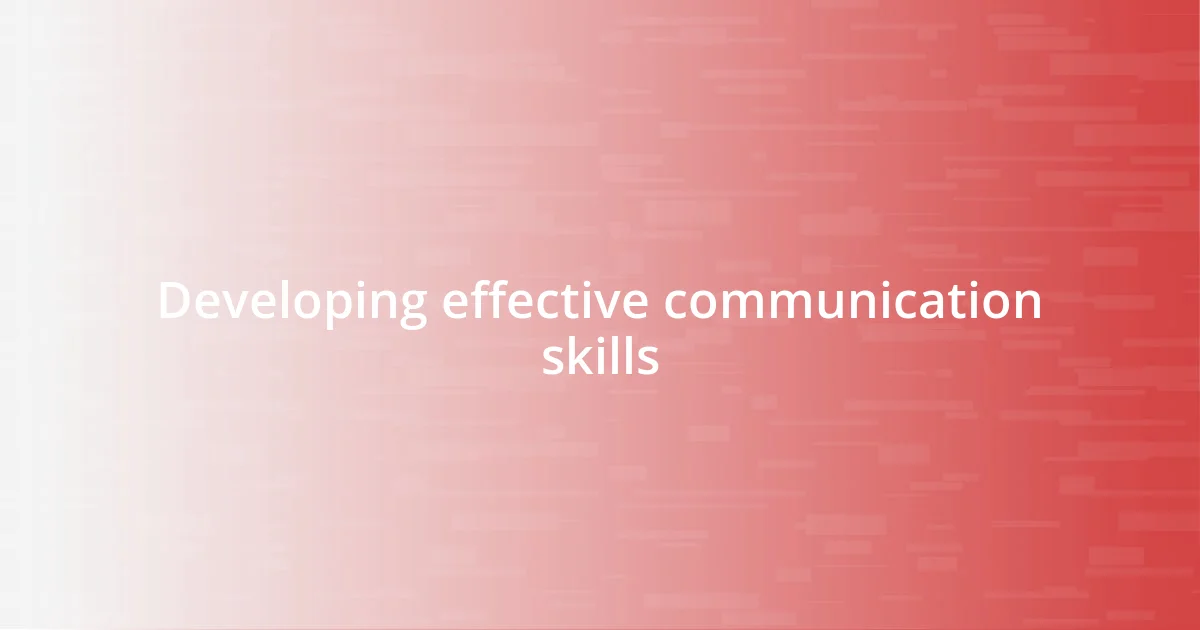
Developing effective communication skills
Effective communication skills are essential for any activist looking to make a real impact. I remember the first time I tried to address a group about mental health awareness. My hands were shaky, and my voice wavered, but I pushed through. I learned that being genuine and sharing my own struggles helped others relate to my message on a deeper level. Have you ever felt vulnerable while speaking up for something you care about? That feeling of authenticity can resonate far beyond the words themselves.
As I continued to engage with various audiences, I realized that listening was just as crucial as speaking. At a town hall meeting, someone shared their story about living with a disability, and the room felt electric with empathy. I took mental notes of their language and tone, which perfectly captured their experience. This taught me that understanding others’ perspectives not only enriches my communication but also makes my advocacy efforts more inclusive. How often do we truly listen in conversations? It’s a skill that can transform the way we connect with others.
Practicing clarity and conciseness has also played a significant role in my development. When I participated in a panel discussion, I tried to convey complex ideas in simple language, avoiding jargon that might alienate my audience. Instead of saying “intersectionality,” I opted for “how different identities impact our experiences.” It’s a small tweak, but it made a difference. Have you ever struggled to express your thoughts and realized that simpler words might convey your message more effectively? By fine-tuning my communication style, I’ve found that the more accessible my language, the wider my message can reach.
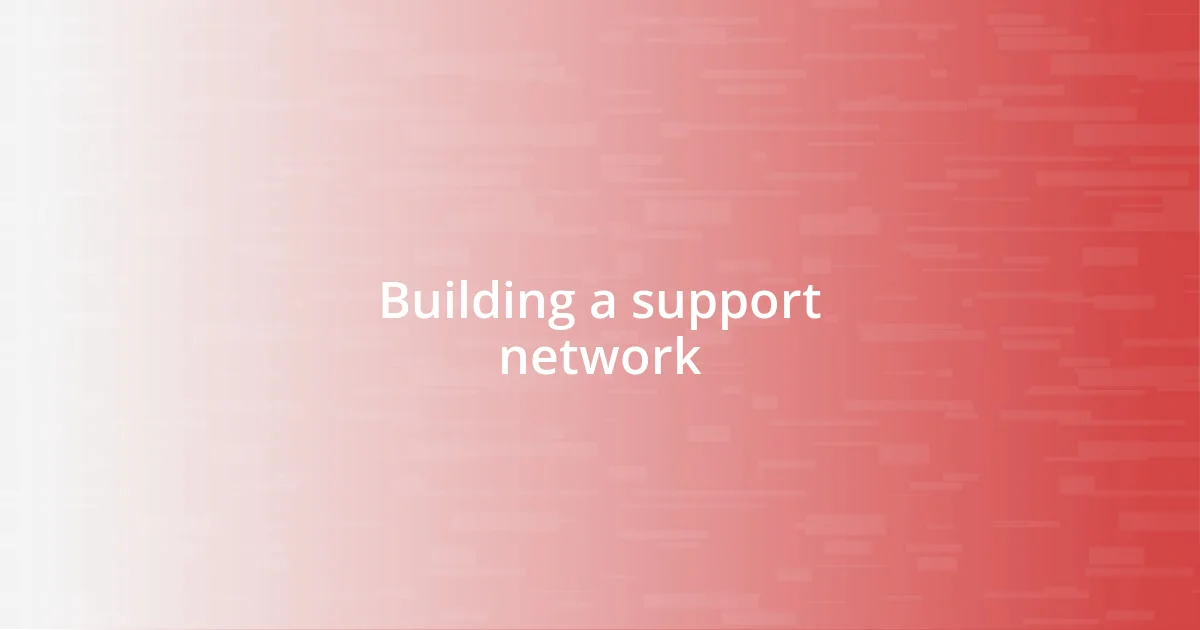
Building a support network
Building a support network can feel daunting, but I’ve found that it’s essential for any activist journey. I remember the first time I reached out to local organizations; it felt like stepping into the unknown. I sent a few emails, each one triggering a mix of excitement and fear. But then came the magic of connection. When I received replies, I felt supported, like I had built a sturdy bridge to like-minded individuals who shared my passion for change.
One of my most significant breakthroughs came during a small gathering of grassroots activists. I shared my experiences and struggles while listening to others share theirs, creating an environment of vulnerability and trust. There’s something incredibly powerful about collective storytelling. Have you ever felt the warmth of a community rallying around you? In that moment, I realized we could foster a network of encouragement through shared experiences—our personal stories became the foundation of our activism.
In my experience, cultivating this network helps combat feelings of isolation and self-doubt. I often find myself overwhelmed by challenges—like when I spearheaded a campaign for better public transport. I reached out to friends for advice, and their insights transformed my approach. They reminded me we’re not in this alone. Isn’t it comforting to know that you can lean on others during tough times? Finding and nurturing supportive relationships not only empowers your voice but also amplifies the impact of your efforts.
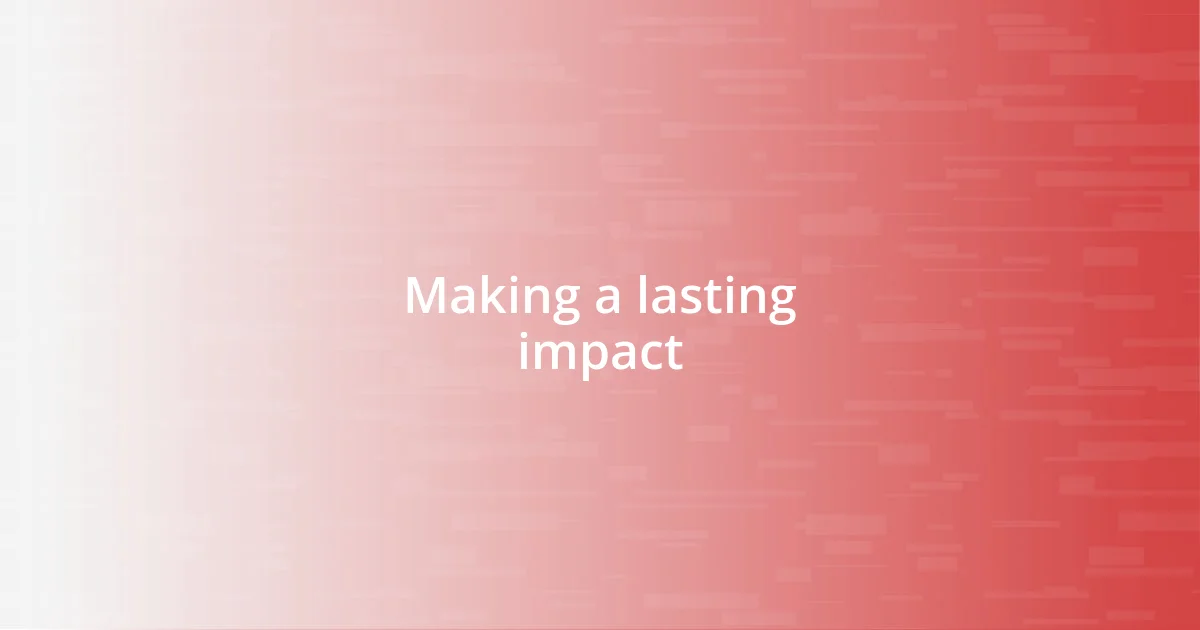
Making a lasting impact
Making a lasting impact often hinges on persistence and adaptability. I vividly remember the frustration I felt when my first campaign didn’t gain traction. It was disheartening, but I realized I needed to reassess my approach. By gathering feedback and asking for insight from my peers, I discovered new strategies that not only reignited my enthusiasm but also connected me with a broader audience. Have you ever faced a setback that eventually turned into a lesson? Those moments of reflection can pave the way for greater effectiveness in advocacy.
Another key to creating a lasting impact is the art of storytelling. I once participated in a community event where each activist shared their journey. While listening to tales of struggle and triumph, I felt a sense of unity wash over me. Those personal stories had a profound effect, weaving our individual experiences into a collective tapestry of resilience. When I later shared my story, I could see the audience nodding along, connecting emotionally to my words. Can you recall a time when a story transformed how you viewed an issue? By sharing our unique narratives, we can inspire action and compassion in others.
Ultimately, making a lasting impact requires a commitment to not just speak but also to act consistently over time. I began volunteering regularly at a local shelter, which offered a humbling perspective on the issues I campaigned for. Seeing the direct effects of my efforts reinforced my resolve and shaped my understanding of community needs. Isn’t it fascinating how stepping into action can deepen our resolve? Each small effort contributes to a bigger picture, cultivating momentum that brings about real change.

